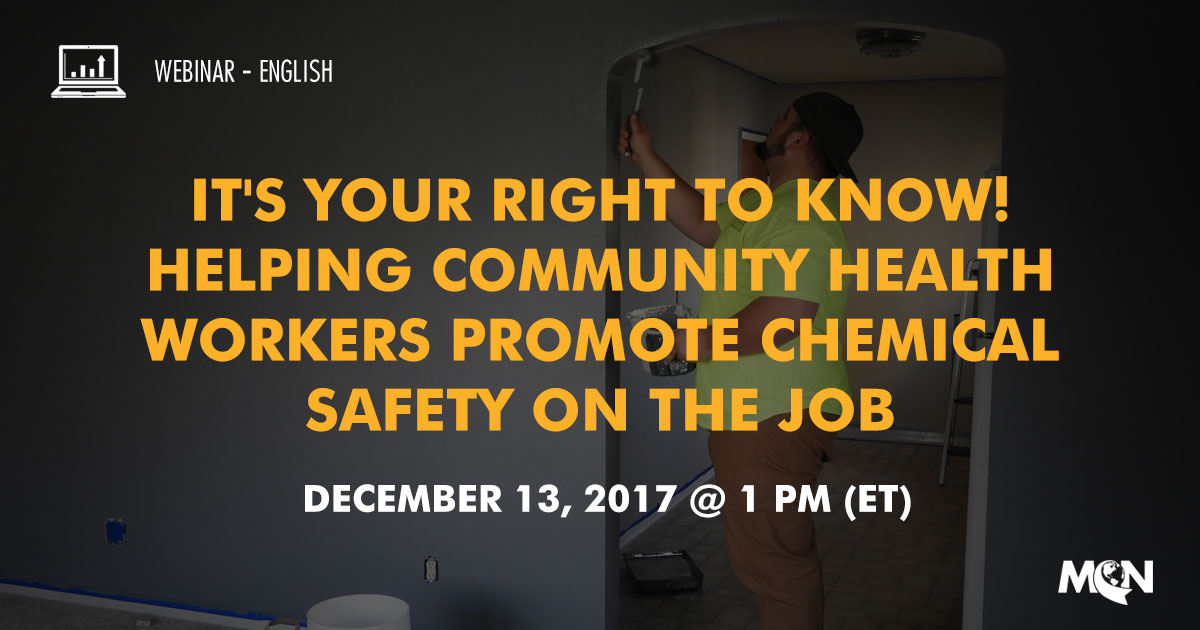- Who We Are
- Clinician Employment
- Publications
- Witness to Witness (W2W)
- El Premio Kugel & Zuroweste a la Justicia en la Salud
- Your Voice Matters: Photovoice Project
WEBINAR | It's Your Right to Know! Helping Community Health Workers Promote Chemical Safety on the Job (12/13/17)

DATE: December 13, 2017, 1 pm (ET)
SPEAKERS: Juliana Simmons, MSPH, CHES and Amy K. Liebman, MPA, MA
Continuing Education Credit
To receive CME* or CNE credit after viewing this webinar, you must:
- Complete the Participant Evaluation associated with this webinar
- Send an email with your first and last name stating which webinar you completed to contedu@migrantclinician.org
Description
Jason and his crew of painters arrived at their worksite ready for the day's work. The job at hand involved stripping paint in a small room and the boss said not to come out until the job was done. It didn't take long before Jason began feeling dizzy and nauseous and then started vomiting. Soon his world was spinning and he was slipping in and out of consciousness. He looked to his coworkers and noticed them slumped on the ground. All three men had to be removed from the site and revived. Jason was lucky. The paint stripper his crew used contained methylene chloride, which is highly toxic and resulted in at least 13 worker deaths between 2000 and 2011.
Millions of workers are exposed to chemicals everyday on the job. All workers have the right to know about the chemicals they work with and community health workers can be an important source of information and support for workers. This workshop will teach community health workers how to explain what happens when someone is exposed to chemicals and how workers can best protect themselves.
Learning Objectives
- Recognize how workers become exposed to chemicals and illnesses
- Describe basic safety practices when working around chemicals
- Understand the role of community health workers in identifying and preventing work related illnesses and hazards
This project is supported by the Health Resources and Services Administration (HRSA) of the U.S. Department of Health and Human Services (HHS) under cooperative agreement number U30CS09742, Technical Assistance to Community and Migrant Health Centers and Homeless for $1,094,709.00 with 0% of the total NCA project financed with non-federal sources. This information or content and conclusions are those of the author and should not be construed as the official position or policy of, nor should any endorsements be inferred by HRSA, HHS or the U.S. Government.
Files




